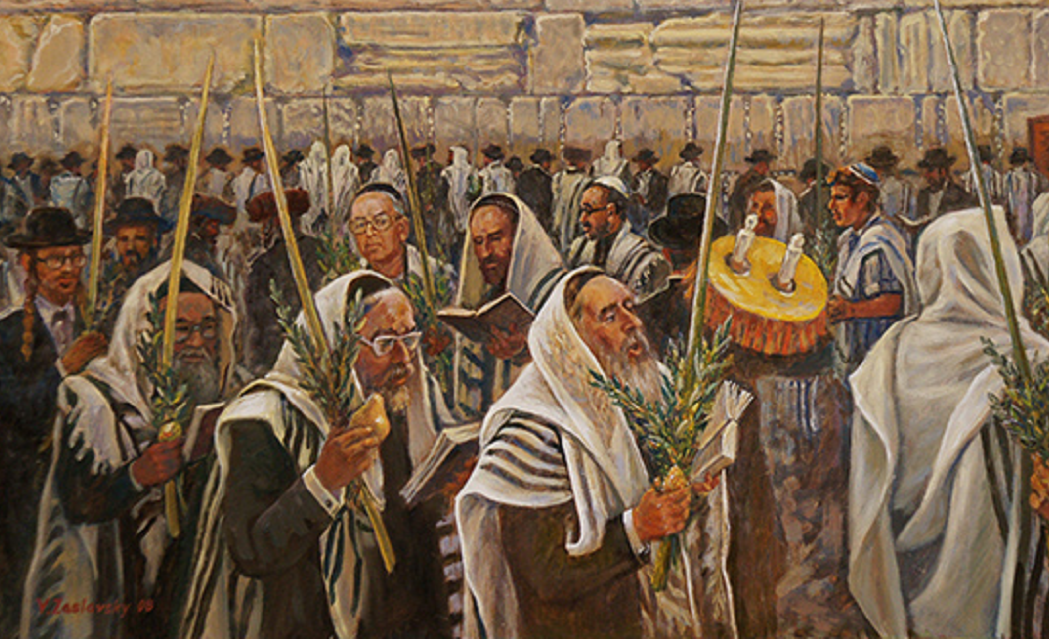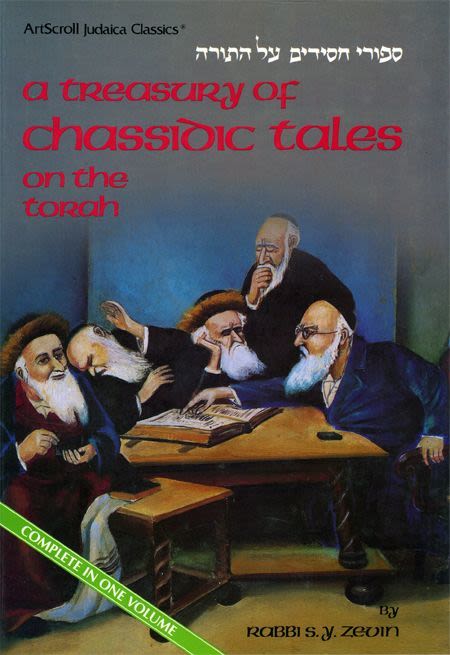
Rebbe Nachman on Patience
Even in times of trouble, whatever God sends, He sends in such a way that the trouble itself contains the salvation. Keep your eyes open for God's love and mercy!

Edited and adapted by Rabbi Avraham Greenbaum
Rebbe Nachman on Patience, Part 1
A Little Suffering
Sometimes when people don’t want to suffer a little, they end up suffering a lot! (Siach Sarfei Kodesh I, 6)
When to Push, When to Wait
When you just can’t fall asleep, it’s no use trying to force yourself to sleep. The more you try to force yourself, the more sleep will elude you. The same applies to many other things: it is not good to force yourself too much, because the more you try to force yourself, the stronger the opposing forces will become.
At times this applies even to prayer and devotion. You should certainly make every possible effort to sanctify yourself and attain true devotion. When something  can be done today, don’t leave it for tomorrow – because the world never stops for a moment. Man’s world consists only of the present. Whatever you can do to serve God, do immediately and determinedly without delay. Who knows what obstacles you may face from the outside and from within if you leave it until later?
can be done today, don’t leave it for tomorrow – because the world never stops for a moment. Man’s world consists only of the present. Whatever you can do to serve God, do immediately and determinedly without delay. Who knows what obstacles you may face from the outside and from within if you leave it until later?
 can be done today, don’t leave it for tomorrow – because the world never stops for a moment. Man’s world consists only of the present. Whatever you can do to serve God, do immediately and determinedly without delay. Who knows what obstacles you may face from the outside and from within if you leave it until later?
can be done today, don’t leave it for tomorrow – because the world never stops for a moment. Man’s world consists only of the present. Whatever you can do to serve God, do immediately and determinedly without delay. Who knows what obstacles you may face from the outside and from within if you leave it until later?But at times you may see that, despite all your efforts and determination, you simply cannot achieve what you want. Sometimes you must simply wait. Don’t be discouraged because you are not achieving what you want. Don’t let this push you off course. You must wait a little until the time is ripe.
The most important thing of all is to look to God at all times with longing and yearning, even when things are not going as well as you would like in your prayers and devotions. Never despair, no matter what. And as soon as God gives you the opportunity to do something holy, do it at once. (Chayey Moharan #431)
The Problem Contains its Own Solution
“In my distress you relieved me.” (Psalms 4:2)
Even in times of trouble, whatever God sends, He sends in such a way that the trouble itself contains the salvation. Keep your eyes open for God’s love and mercy! If you look carefully you will see that even when God sends you trouble, He is still helping you . He actually helps you by means of the very trouble itself, treating you with tremendous kindness all along.
Thus King David said: “In my distress you relieved me” (Psalms 4:2) . You have helped me by means of the very trouble itself!
Of course we want our troubles to be over and we hope and trust that God will quickly save us from all of them and bring us great good. Yet even now, while our troubles are still tormenting us, God is helping us. (Likutey Moharan I, 195)
Accepting the Seemingly Bad Things
“Love your friend like yourself, I am God.” (Leviticus 19:18)
You must accept all your troubles and suffering in life with love. You must understand that, considering all the wrong you have done, God is actually treating you very mercifully and sending you less suffering than you really deserve. If God were to mete out the full punishment for your transgressions , you would have to suffer much more, God forbid.
In the verse, “Love your friend like yourself” (Leviticus 19:18 ) , the Hebrew word for “your friend”, RE-acha , can also be read as RA-acha , “your bad”. In other words, you must lovingly accept your suffering and all the bad things that happen to you. Because “…like yourself!” – considering the way you are and considering all your bad deeds, nevertheless, “I am God” – “I am full of compassion and I am treating you with great mercy.” (Likutey Moharan I, 165)
Show Us a Love That We Understand
When the sons of Jacob were about to journey to Egypt with Benjamin, Jacob said to them, “May the eternal God give you love” (Genesis 43:14). This expresses the very essence of Godly love, when He “gives you the love” – namely, when God puts His love in our hands.
For God, it can be that even serious illness and other forms of suffering are expressions of His love, because certainly God sends everything He sends to a person out of love, even when He sends them severe pain and suffering. However, we ask that He should entrust His love to us and put it in our hands, because we do not understand His love and we are unable to bear it.
May God put His love in our hands and give us love in our terms, because we understand love in the simple sense where it means healing from illness and the like. (Likutey Moharan II, 62)
Bitter Medicine
All physical medicines are bitter, and the same is true in healing the soul: the soul is healed through bitterness. You may have to overcome many obstacles and endure much suffering in order for your soul to be healed.
With physical illnesses there are times when the body becomes so weak that the invalid cannot bear the bitterness of the medicines. The doctors despair of ever curing him and simply abandon him. Similarly, when a person falls under the influence of sin, which is the sickness of the soul, he may be unable to bear the bitterness of the remedy. There may seem to be no hope for him at all.
However, God is filled with love. When He sees that a person wants to return to Him but lacks sufficient strength to bear the bitter remedies necessitated by his sins, He takes pity and casts all the person’s sins aside in order to save him excessive suffering. God sends him only as much as he can bear.
Many find that as soon as they try to return to God and follow the paths of the Tzaddikim, they suddenly encounter difficulties and obstacles on every side. At times it is impossible to bear the bitterness and overcome the obstacles. There have been cases of people who became so discouraged that they went back to their old ways, God forbid.
One who truly desires to draw closer to God should have faith that regardless of how much bitterness or suffering he may endure, everything is being sent to him out of love. If the suffering were really in proportion to the magnitude of his sins it would have been far greater. He would have been much too weak to bear it and he would have been totally lost. But God in His love only sends as much bitterness and suffering as a person can bear. This much he must bear, and it is certainly within his power to endure it. (Likutey Moharan I, 27)
To be continued.
***













Tell us what you think!
Thank you for your comment!
It will be published after approval by the Editor.